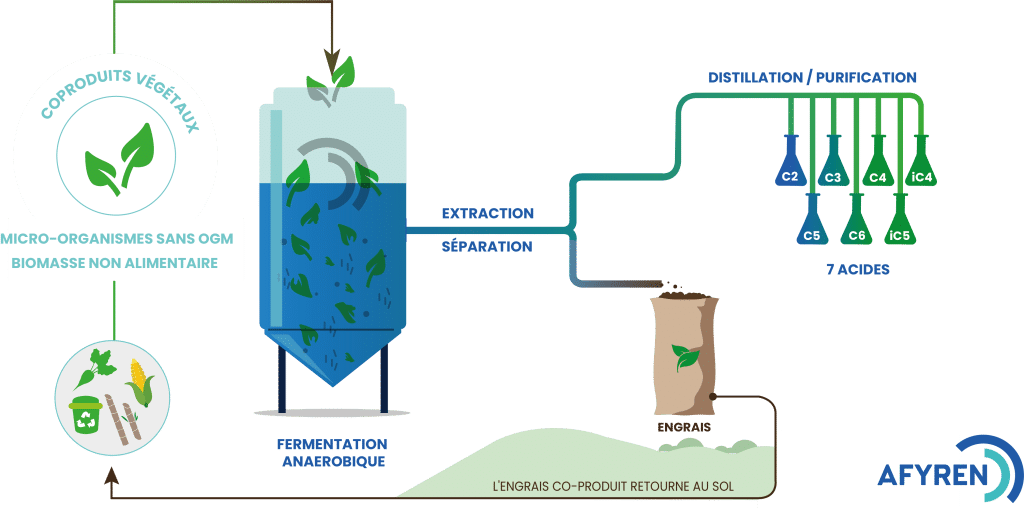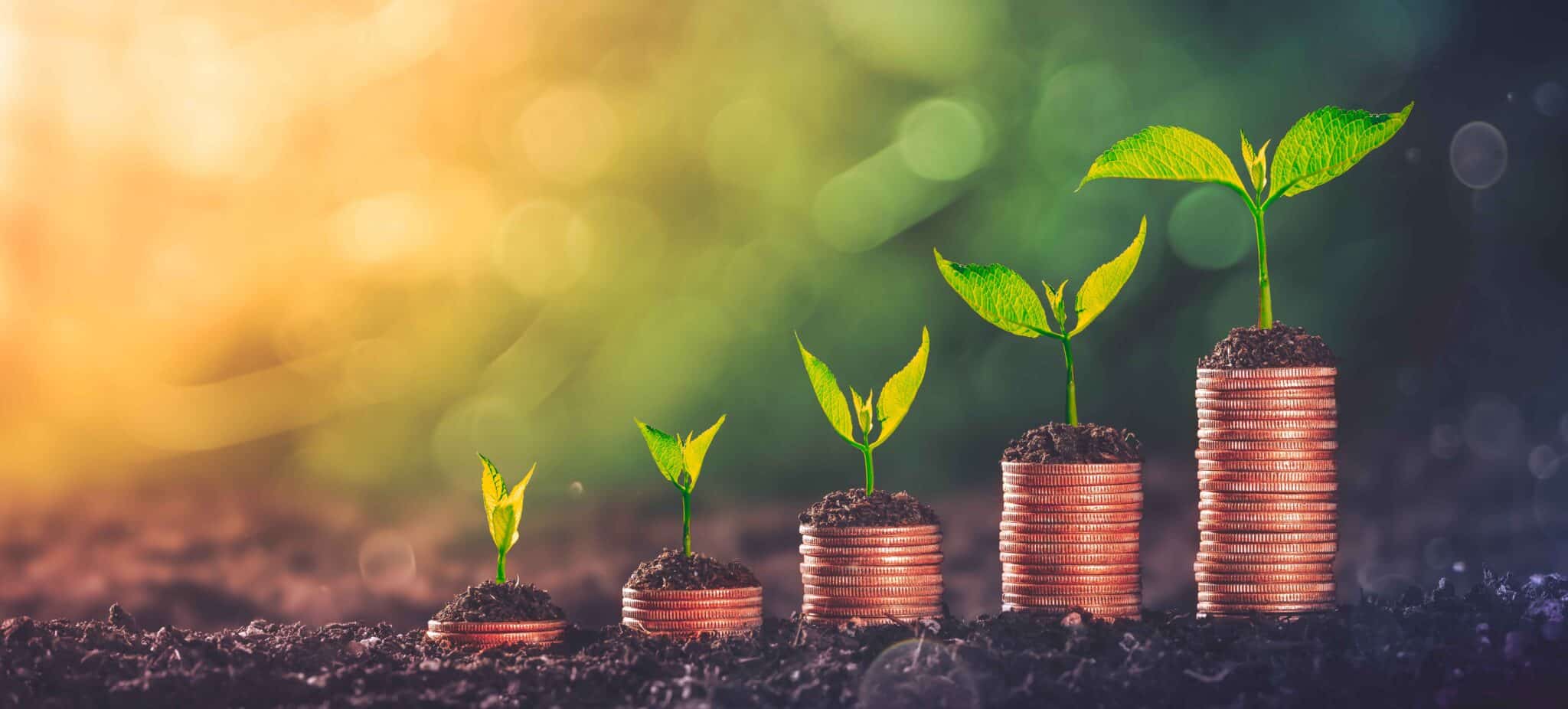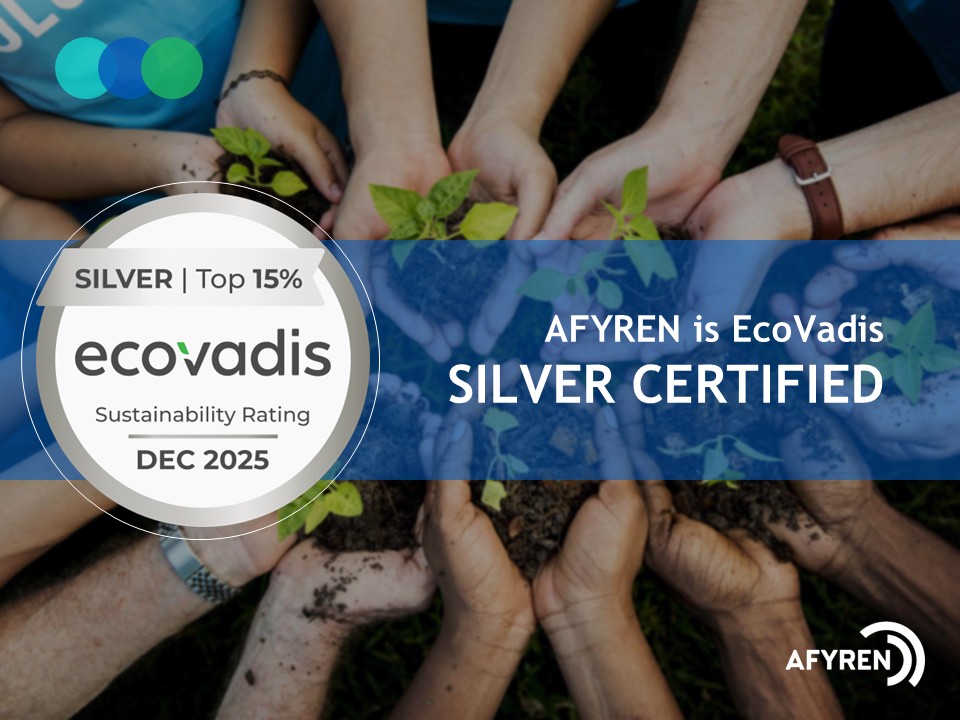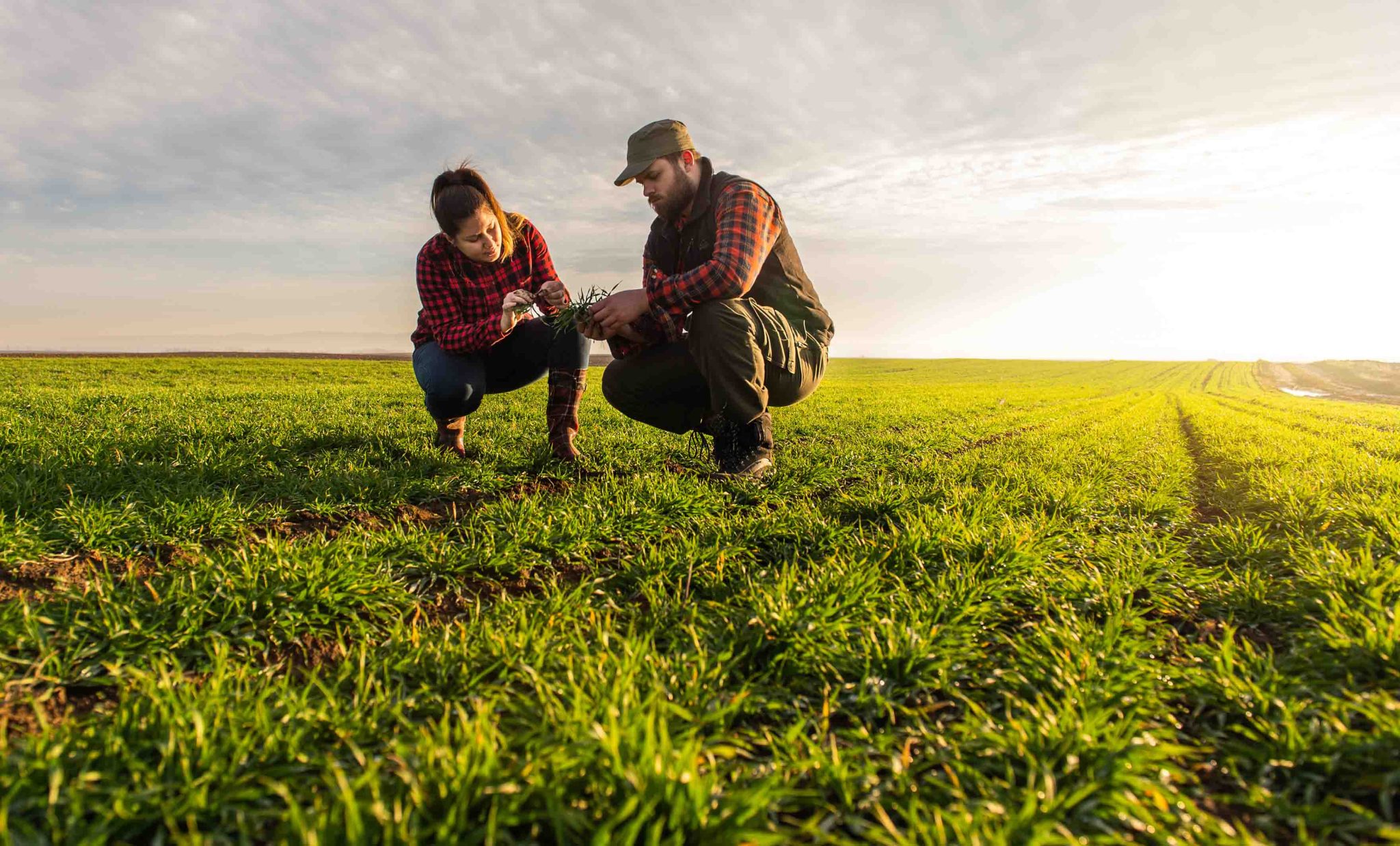Retour page d’accueil • From natural fermentation to an industrial and innovative biomimetic process
From natural fermentation to an industrial and innovative biomimetic process

Today, more than half of all companies say they are committed to sustainable development, but it is becoming increasingly clear that reconciling environmental and economic performance involves many difficult choices. Only 21% of companies have a clear roadmap for implementing their sustainability strategies. At AFYREN, we believe that sharing knowledge and experience can contribute to a more sustainable future. In our blog posts, we seek to share the expertise we have developed on our own journey toward a sustainable, circular business model.
In 2021, the world used up the equivalent of 1.7 planets’ worth of resources to satisfy production and consumption needs. This statistic, calculated every year by the NGO The Global Footprint Network, is one of the many stark environmental warnings that is pushing companies and ordinary citizens to be more careful in the use of our resources. At the same time, the appeal of so-called natural products has now surpassed that of conventional goods . These two trends underscore some of the difficult choices manufacturers face. They are caught between an insatiable demand for natural products that respect the environment, the need to find solutions that reduce the use of fossil fuels and the temptation to promote agroforestry crops that compete with food chains.
Many have realized that a solution based on a sharp focus on circularity could solve both their dependence on oil and reduce their impact on the environment. This is why biotechnology, and specifically fermentation, is becoming increasingly attractive and visible in the industrial landscape.
Modern fermentation technology uses living organisms to obtain molecules used in multiple markets such as the chemical industry, cosmetics, human and animal nutrition and pharmaceuticals. The opportunities are very broad, and biotechnology solutions have been identified capable of meeting the challenges of a new kind of industrial production — one that combines environmental protection and economic performance.
Industrial biotechnology, known as «white» biotechnology, has seen thousands of fermentative processes flourish at the pilot or laboratory development stage. However, scaling up to industrial production is such a technical and economic challenge that it can be difficult to distinguish which ones can be relied upon to sustainably replace conventional ingredients in very large volumes, without losing quality, performance and competitiveness.
- What are the criteria for identifying fermentation processes capable of meeting industrial requirements and the challenges of scale-up?
- Since its first uses in antiquity, what has biotechnology led us to gain mastery over?
In this post, we’ll take a look at about how AFYREN, striving to reconcile performance, sustainability and competitiveness, has been able to overcome certain constraints during the development of its process.
Fermentation, an ancient cycle of renewable resources for humanity
The very first circular economy was established long before humans. In order for Earth’s biosphere to sustain itself, metabolic cycles were established, in which microorganisms feed on energy and matter to grow, and excrete compounds, which are put back into the natural cycle. In the case of fermentation, this process can take place in an «aerobic» or «anaerobic» environment, i.e. with or without oxygen. In either case, the microorganisms will draw these atoms from a substrate, such as carbohydrates, to obtain energy. The product of this transformation is a varied set of molecules (metabolites) which can in turn be used by other microorganisms, or enter into natural physiochemical processes (evaporation, crystallization, acid-base equilibrium, oxidation-reduction, etc.).
Industrial fermentation as a method to obtain viable biobased products
Fermentation bubbled up as man settled down. Our ancestors used the process of fermentation very early, with increasing craft and functionality depending on the level of mastery. It has been used since the Sumerian era, between 8000 and 4000 B.C., to preserve fresh products resulting mainly from agriculture. Beyond improving survival conditions, fermentation has been at the origin of a culinary culture specific to every geographical area: wine, beer, cheese, yoghurt, fermented vegetables (sauerkraut, gherkins, kimchi…), vinegar, soy sauce, bread, sausage, cured meats, and the list goes on.
The other great pivot in the use of this process occurred in the 19th century, with the beginnings of enzymology, when Louis Pasteur demonstrated that micro-organisms were responsible for the transformations observed during fermentation. In the 20th century, the birth of biotechnology and the industrial use of microorganisms led to the development of many products of interest: the first vaccines, the first antibiotics, and baker’s yeast.
Over the last century, industries have developed that use fermentation processes in very large capacities to obtain bio-sourced industrial products for non-food applications. The best known and most widely produced is bioethanol, with more than 90 million tons produced per year worldwide. It has applications in «green» fuels, chemistry, food, perfumery and pharmaceuticals. There are other fermentation products, such as lactic acids, glutamic acids, etc., that are less well known but just as essential in our daily lives.
The development of production technologies, the sequencing of micro-organism genomes, and the development of new strains, have allowed the emergence of brand new fermentation processes. New molecules with high added value, until now obtained from conventional resources, could be produced thanks to fermentation, including high-value molecules such as vanillin.
[…]
AFYNERIE® : a biomimetic process for innovative and competitive fermentation
To overcome these constraints, the original approach we chose at AFYREN is biomimicry, which aims to mimic nature as closely as possible while maintaining industrial performance objectives. Our process is based on metabolic chains found in natural ecosystems (like the stomachs of ruminants, or lakes). And we produce a set of molecules (not just one target), using raw substrates without pretreatments, such as beet pulp. We also use a mix of microorganisms rather than a single one, to transform all the material available with a rich and varied natural enzymatic load.
In this industrial approach, which places moderation at the heart of its economic model, the aim is to find the best outlet for each of the molecules produced naturally by these micro-organisms, instead of seeking maximum optimization for a single valuable product.
This approach allows us to overcome technical and economic constraints since the fermentation is not very constrained itself and therefore offers several advantages. All the natural micro-organisms live in symbiosis, so we don’t need to develop one or more efficient strains through genetic modification, to sterilize the environment or to use very specific inputs to ensure their survival and productivity.
Finally, this population of microorganisms transforms various substrates with high yields and can work with a wide range of agricultural co-products distributed all over the world that don’t compete with human food. Since the AFYREN process can be applied to a wide range of organic residues, the resources are not a limiting factor to production and the process is local and circular. Using local resources as close as possible to producers and downstream users makes sense and encourages the development of an integrated circular economy.
The process is ultimately transposable wherever there are fermentable resources that allow high fermentation volumes, while maximizing the transformation to obtain valuable products, and little unexploited residue left. In the end, AFYNERIE’s technology makes it possible to manufacture biosourced molecules with a very small carbon footprint (one-fifth that of petro-sourced equivalents) while preserving natural resources. More broadly, the technology proves that it is possible to marry Ecology and Economy and to contribute to the transformation of industrial value chains.

Last news

AFYREN raises €7 million through share capital increase to support its industrial deployment
Press release
AFYREN obtains FSSC22000 certification for its AFYREN NEOXY plant, recognizing excellence in food safety quality
News post Press release
AFYREN NEOXY: first significant revenue and growing production in 2025
News post Press release
AFYREN confirms drawdown of €7 million in previously secured financing for its subsidiary AFYREN NEOXY
News post Press release
AFYREN awarded Silver Medal by EcoVadis for CSR performance, ranking in the top 8% worldwide
Press release
AFYREN and ESSE Skincare begin partnership to offer 100% natural cosmetic solutions with enhanced skincare performance.
Press release
AFYREN raises €23 million through share capital increase to finance optimization and expansion of unique biorefinery AFYREN NEOXY
Press release

